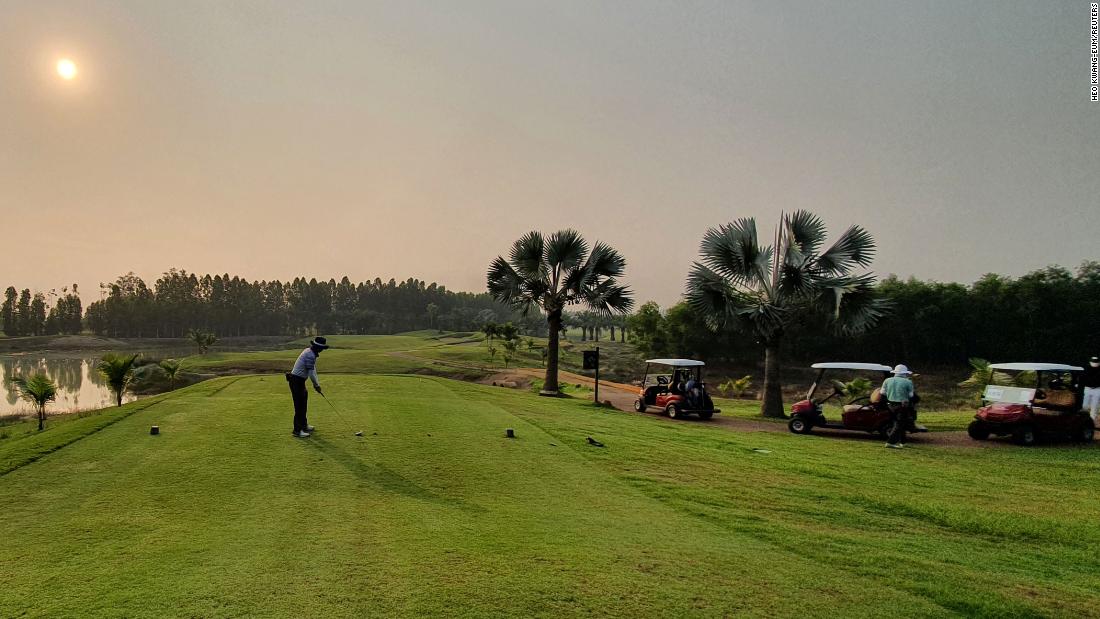
The 66-year-old businessman is one of the first group of 41 Korean travelers to arrive in Thailand under a ‘golf quarantine’ program devised by the Thai government to boost its ailing tourism sector during the pandemic.
At the Artitaya Country Club, the visitors were tested three days after arrival last week, and face at least two more tests before they can exit quarantine. With bars and other resort facilities closed, there’s no prospect of a gathering for Heo and other visiting golf fans to thrash out the missed birdies, bogeys and shanks of the day, but spirits remain high.
“It’s a huge golf course here,” said Heo, speaking in his room before a packed lunch break to refuel before heading out for his second round of the day, playing off a handicap of 10.
“Think of 41 Koreans golfing as you roam around the course, served by over 100 employees. It’s like emperor’s golfing,” said Heo, kitted out in a hot pink golf shirt and shorts in a more subdued shade of pink.
Heo said other countries should also adopt the Thai campaign and boost tourism by cutting days of confinement and allowing people to take walks or jog within a boundary.
“It’s extremely hard to go golfing in Korea these days because of COVID,” said Heo, due to spend another month in Thailand on business after completing quarantine. “Here it’s a golf paradise.”
The 2.49 million won ($2,240) price of the package – paid for by the golfers – is reasonable comparing with the cost of a 14-day isolation period spent cooped up in a regular hotel room, Ku Jung-keun, general manager of the Artitaya Country Club, told Reuters.
“The golf quarantine offers three safe (coronavirus) tests and time to enjoy golfing. Doctors provide daily health check-ups for the guests, too,” said Ku.
The next group departs in two weeks, the golf club’s Seoul operations director Hong Soon-bong says.
“We have around 100 rooms available for up to 150 people. We are receiving three times more inquiries (than in usual periods) about the package,” Hong said.
“Since the COVID outbreak last February, our company reported little to no sales,” he said. “It was very difficult, but we came to hope again through this opportunity.”
